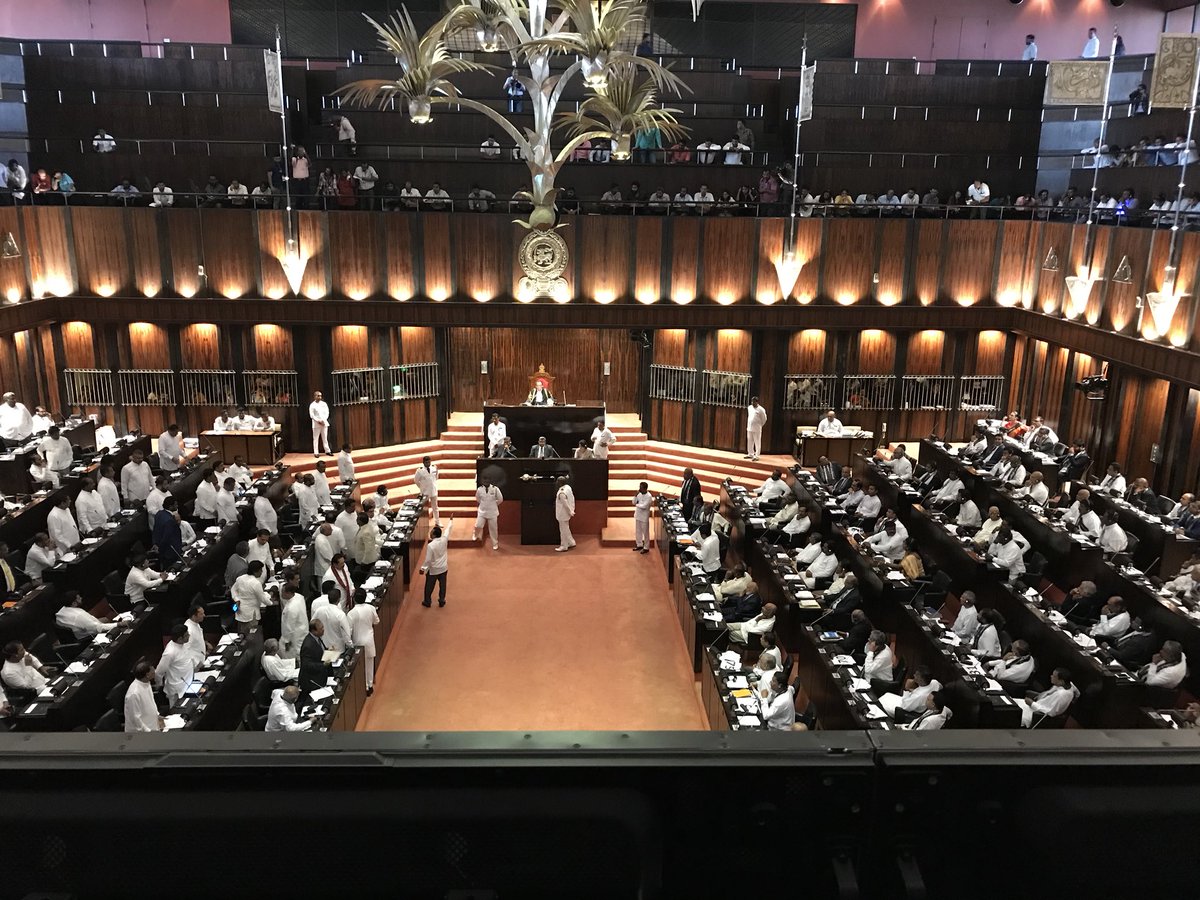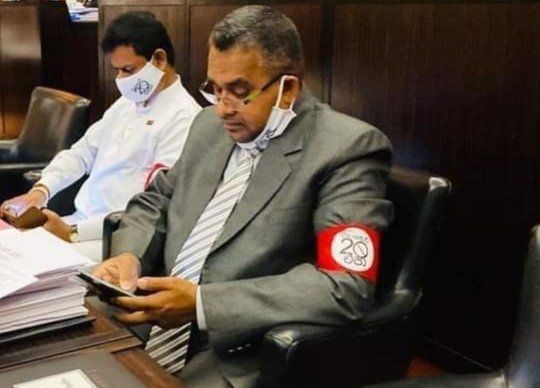
Sri Lanka’s parliament passed the 20th Amendment to the Constitution on Thursday, a move that will see the presidential office currently occupied by Gotabaya Rajapaksa significantly strengthened, as Opposition parliamentarians were amongst those joining the regime to vote in favour.
Following two days of debate on the bill, the passing of the amendment will grant Sri Lanka’s president the power to sack any minister, including the prime minister, and dissolve parliament after two years and six months of its five-year term. The president’s office will also be charged appointing authorities for various roles elections, public service, police and human rights commissions, with an abolished constitutional council and a newly formed parliamentary council, which he will no longer be bound to abide by.
A total of 156 legislators voted in favour of the amendment, with only 65 votes against the move, granting the government a two-thirds majority.
Though it was widely expected that Rajapaksa’s Sri Lanka Podujana Peramuna (SLPP) would vote in favour of the move, there were some surprise defections from the Opposition which gave them the two-thirds they required.
Amongst the defections were four out of five parliamentarians from the Sri Lanka Muslim Congress (SLMC). The four lawmakers, Nazeer Ahamed, Faizal Caseem, HMM Harees and MS Thowfeek all voted in favour of the amendment, defying a call from party leader Rauff Hakeem.
“Some members who are representing the eastern province were urging us to consider this bill and its present contents have sought to be amended positively hoping that would be politically pragmatic given the development needs of the area,” he said before the vote. “It is my fervent hope that the political experience for the sake of compromises should not be doled out as political pragmatism.”
Despite his vote, Thowfeek was pictured at the beginning of the debate wearing a red “No to 20A” armband.

The Samagi Jana Balavegaya (SJB), which heads Sri Lanka’s Opposition also found that its Assistant Secretary Diana Gamage also sided with the government. After the vote, Gamage told reporters that she had “voted with her conscience” as she had “faith in President Gotabaya Rajapaksa.”
Aravind Kumar from the Tamil Progressive Alliance (TPF) also voted with the government, with party leader Mano Ganesan announcing that he was henceforth sacked from the party politburo and suspended from the party.
The United National Party (UNP), which holds one seat in parliament, was unable to vote as debate rages on within the party on who should occupy the single seat. Former Sri Lankan prime minister Ranil Wickremesinghe, who led the party to a dismal performance at Sri Lanka’s parliamentary elections with more than 100 seats from the previous parliament lost, remains the party leader.
One aspect of the amendment that did face opposition from within the SLPP was the dual citizenship clause, which would allow dual citizens from holding political office in Sri Lanka. The move would be beneficial to the already powerful Rajapaksa dynasty, with Basil Rajapaksa – brother to the president and suspected to have been involved in corruption – holding dual-US citizenship.

SJB MP Nalin Bandara Jayamaha controversially raised the dual citizenship topic, as he unfurled an American flag during the debate. “The danger is that this bill will not only allow Americans but also Chinese too. Chinese too can become MPs here,” he claimed.
The parliamentarian went on to put on a black mask over his face, where according to The Island, he said, “When we stand together it is difficult to identify who is Tamil, who is Sinhala who is Muslim... But this bill will help those with different racial features coming here”.

Some within the Rajapaksa regime also opposed the dual citizenship clause, such as known Sinhala extremist Wimal Weerawansa, with reports that there are fears members of the Tamil diaspora would be allowed to hold office on the island.
However, a separate vote on a clause was passed, with 157 voting in favour to 64 against.
Opposition to the bill came mainly from Tamil parties in the North-East and JVP led National People’s Power (NPP). Parliamentarians from the Tamil National Alliance (TNA) and Tamil National People’s Front (TNPF) spoke out against the move, with Gajendrakumar Ponnambalam warning this was the “beginning of a slide that will ultimately lead to not just authoritarianism but dictatorship”. “These are the same steps taken by Hitler of Germany in his early days of politics,” the SJB’s S.M. Marikkar added.
Nevertheless, the amendment was passed and will now go to Sri Lanka’s speaker for certification.
Sri Lanka’s Justice Minister Ali Sabry told parliament that the constitutional change “will strengthen the executive, ensure national security and bring prosperity and vicarious joy and happiness to the nation”.
